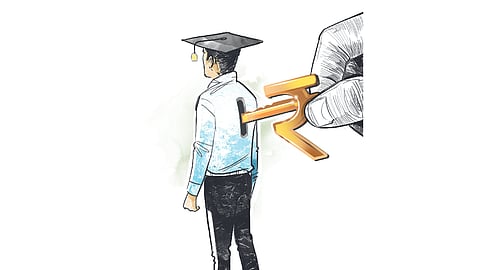

CHENNAI: The Adi Dravidar and Tribal Welfare Department has issued a Government Order to provide fellowship to 70 students through the Tamil Nadu Fellowship for Tribal Research initiative, part of the Tholkudi scheme. This fellowship promotes research into the lives of the state’s tribal communities.
Final-year undergraduate and postgraduate students will receive Rs 10,000 per month for six months, while PhD scholars and postdoctoral researchers will receive Rs 25,000 per month for three years.
“Encouraging such research will help identify options and evaluate potential outcomes, leading to informed decisions that shape state policy,” the guidelines state. Students can explore various facets of tribal life, including culture, history, language, social structure, customs, governance systems, and socio-economic and political well-being.
Research may also focus on the unique identities of different tribal groups, their relationship with the environment, art forms, spiritual beliefs, traditional knowledge, and interactions with the modern world.
However, research topics should relate to governance, development, rights, culture, education, health, and livelihood issues affecting tribal communities.
Eligibility criteria include Tamil Nadu residency and a parental income not exceeding Rs 8 lakh per annum. The maximum age for applicants is 50 years for men and 55 for women. Students must be enrolled in full-time undergraduate, postgraduate, PhD, or postdoctoral courses at recognised institutions.
A screening committee of academics will be formed by the Director of Tribal Welfare, while the Adi Dravidar and Tribal Welfare Secretary will head the selection committee. Priority will be given to tribal students, Scheduled Caste and converted Christian students, with further preference for women, differently-abled, and transgender applicants.
Upon completion, scholars must submit their thesis to the government.
The state government has earmarked Rs 1,000 crore for the Tholkudi scheme, to be spent over four years from 2024-25 to 2027-28. For 2024-25, Rs 250 crore was sanctioned, focusing on improving infrastructure and livelihoods in tribal areas.